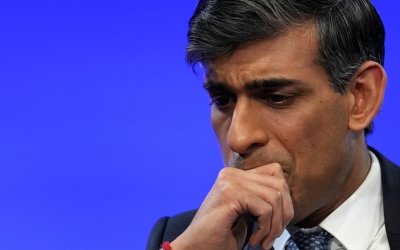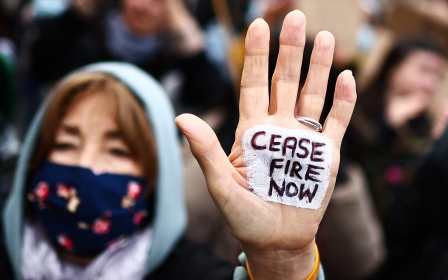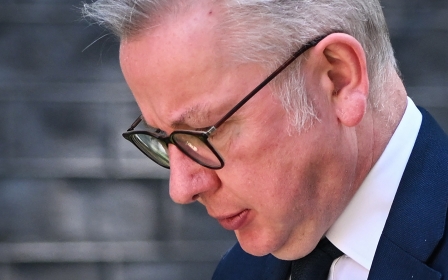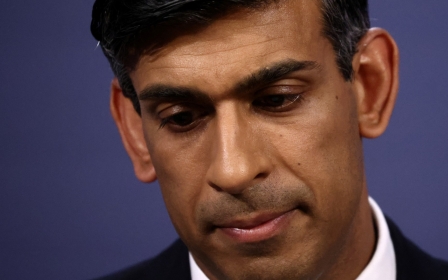Across Britain, there is licence for bigotry against Muslims
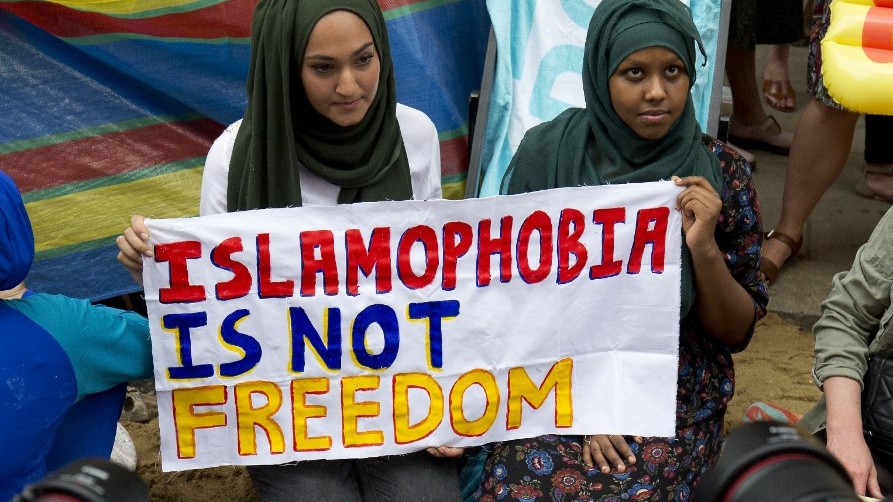
The recent ruling against a Muslim student at the widely celebrated Michaela Community School in London is essentially a story of a student wanting to observe her midday prayers during her lunch break - an obligatory act of five-10 minutes for post-pubescent Muslims. She was denied this by the school’s headteacher, a decision backed by the High Court.
Denying her the right to pray helped to promote a team ethos of inclusivity and social cohesion, the judge said. Go figure.
Muslims who favour an approach of less-conspicuous religiosity or public displays of piety might well agree with the outcome. At Michaela, during school hours, headteacher Katharine Birbalsingh is in charge - and if obeying her rules means coming out with grades and discipline that significantly enhance your life chances, then give unto Caesar, at least for now.
But it shouldn’t be ignored that Caesar here, or Katharine the Great as she has essentially been anointed, has her own watchers - and they have been transparently Islamophobic.
The former home secretary, who was on the board of governors at her school, just weeks ago made the absurd, conspiratorial claim that Islamists were in control of Britain.
What seems on the surface to have been a reasonable request to accommodate an act of spiritual significance required by the Muslim faith, has once more been cast as an issue of security. The “dangerous Muslim” card, a disingenuous trope, is now a weapon for anyone who wants to shut down any request that a Muslim citizen might make - or in the case of the Tory party, it is used by those who want to boost their leadership credentials.
In the context of schools, it sometimes covers for anti-religious, more accurately anti-Muslim, zealots who are determined to force their “civilising” dogma on Muslim children.
Sowing discord
Birbalsingh’s own words offer more than a glimpse of how even everyday Muslim practices are something to be “saved” from. According to the London Central Mosque, which arranged a meeting to advocate on behalf of Muslim students, the headteacher said “she would never allow kids to pray at her school”.
A triumph, then, over the “barbarians at the gate”. This appears to be structural Islamophobia dressed up as robust secularism, all signed off with a rendition of “God Save the King”.
The decision to deny students a few square metres of space for prayer comes against a backdrop where less-subtle racist tropes have been deemed okay, as long as they are said in the right context.
Their platforms are increasingly staffed by professional agitators who promote hatred and discord, and then complain about how they're not allowed to do so
The increasingly impotent British media regulator, Ofcom, this month decided not to investigate a British news presenter for telling her Arab talk-show guest that he was “not used to women talking”, among other insults. Why, then, wouldn’t an emboldened Julia Hartley-Brewer go on to suggest that an individual who attacked and killed Australians at a Sydney mall was an “Islamist terrorist”?
Journalists used to wait to confirm a story before informing the public. Now, their platforms are increasingly staffed by professional agitators who promote hatred and discord, and then complain about how they’re not allowed to do so.
My own research shows that more than 50 percent of reporting and discussions around Muslims in the last 12 months on British television came from just two right-wing channels. Much consisted of conspiratorial obsessions around Muslims being a Trojan horse intent on transforming Britain into an Islamic state.
As a former BBC journalist who spent a month watching GB News described it, the channel is one “where the right hand does not know what the far-right hand is doing”.
Jumping the gun
Hartley-Brewer wasn’t alone in jumping the gun on the Sydney case, with Channel 4 presenter Rachel Riley, who frequently makes pro-Israel comments, saying the attack was linked to a rise in support for Palestine and an example of a “globalised intifada”. Riley subsequently apologised, while suggesting her comments had been misinterpreted.
As for Channel 4’s response: “We have reminded Rachel Riley of her obligations as a contributor to Channel 4 programming.”
Predictably, the widespread licence for bigotry has led to another round of the “Muslims don’t belong here” soundtrack. A poll commissioned by the Henry Jackson Society, which fuelled alarmist commentary about British Muslims, was featured this month on the front pages of right-wing newspapers and given prominent coverage by their TV counterparts.
What readers and viewers were not told was that researchers have described the Henry Jackson Society as an organisation that features “attitudes that mirror far-right theories and political agendas to misrepresent and pathologize minority communities in the West”.
The hysteria has built to the point that a so-called news channel is hailing its discovery of a Muslim network at the Home Office (despite the existence of similar networks for Christian, Jewish and other faith groups), while suggesting “hardline Muslims” are a “Trojan horse” in Britain.
Should we be surprised at this approach? Almost a decade ago, a Channel 4 news presenter falsely accused a mosque and its male members of ushering her out on account of her being a woman, when they simply pointed her to another mosque that was holding the open day she had come to attend. The presenter later apologised, but this perpetuation of the “Muslim male misogynist” trope went unpunished, sending a message that such attacks on the Muslim community are acceptable.
Many might deny that a hierarchy of racism exists in Britain, but weeks like these remind us that it most definitely does. Decisions by some of the country’s most important institutions have confirmed what many Muslims have long suspected, namely that racism or actions against them are a consequence-free endeavour.
This is not to say that every decision can be explained by Islamophobia. There are other factors involved in the arena of competing rights. But seen in tandem with more transparent incidents of anti-Muslim animus, it does feel as if conditions are being made harder for Muslims across the board.
The views expressed in this article belong to the author and do not necessarily reflect the editorial policy of Middle East Eye.
Middle East Eye propose une couverture et une analyse indépendantes et incomparables du Moyen-Orient, de l’Afrique du Nord et d’autres régions du monde. Pour en savoir plus sur la reprise de ce contenu et les frais qui s’appliquent, veuillez remplir ce formulaire [en anglais]. Pour en savoir plus sur MEE, cliquez ici [en anglais].



